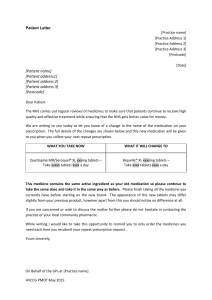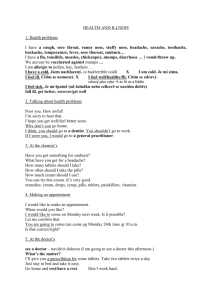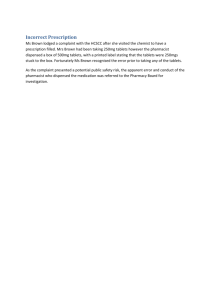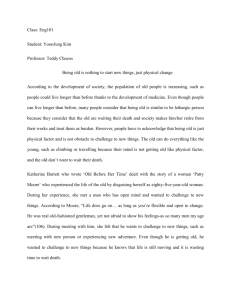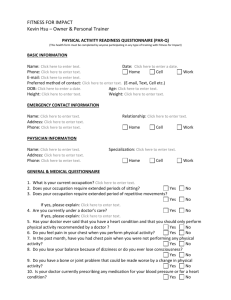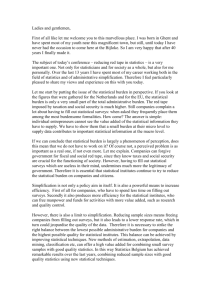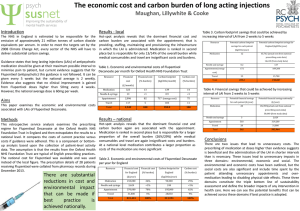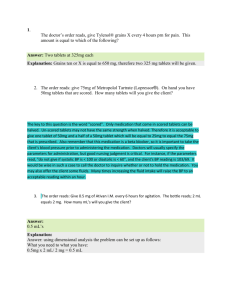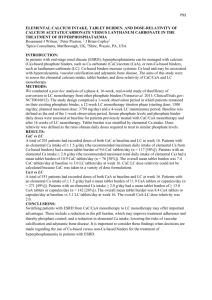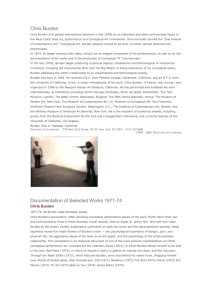file - BioMed Central
advertisement
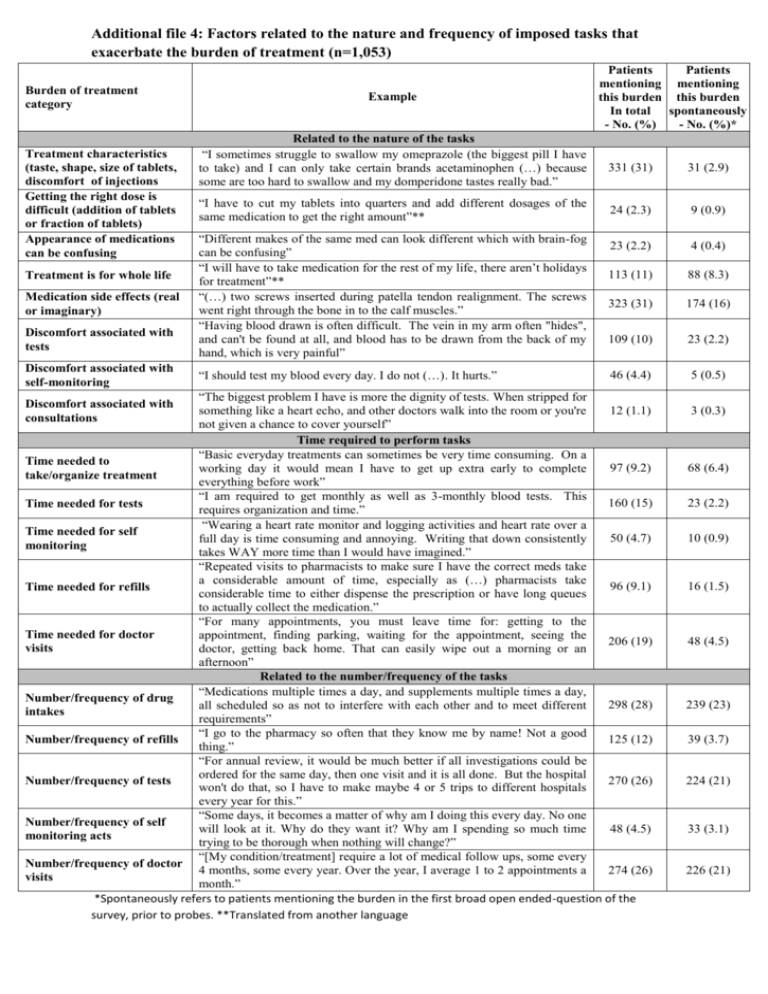
Additional file 4: Factors related to the nature and frequency of imposed tasks that exacerbate the burden of treatment (n=1,053) Burden of treatment category Treatment characteristics (taste, shape, size of tablets, discomfort of injections Getting the right dose is difficult (addition of tablets or fraction of tablets) Appearance of medications can be confusing Treatment is for whole life Medication side effects (real or imaginary) Discomfort associated with tests Discomfort associated with self-monitoring Example Related to the nature of the tasks “I sometimes struggle to swallow my omeprazole (the biggest pill I have to take) and I can only take certain brands acetaminophen (…) because some are too hard to swallow and my domperidone tastes really bad.” “I have to cut my tablets into quarters and add different dosages of the same medication to get the right amount”** “Different makes of the same med can look different which with brain-fog can be confusing” “I will have to take medication for the rest of my life, there aren’t holidays for treatment”** “(…) two screws inserted during patella tendon realignment. The screws went right through the bone in to the calf muscles.” “Having blood drawn is often difficult. The vein in my arm often "hides", and can't be found at all, and blood has to be drawn from the back of my hand, which is very painful” “I should test my blood every day. I do not (…). It hurts.” Patients Patients mentioning mentioning this burden this burden In total spontaneously - No. (%) - No. (%)* 331 (31) 31 (2.9) 24 (2.3) 9 (0.9) 23 (2.2) 4 (0.4) 113 (11) 88 (8.3) 323 (31) 174 (16) 109 (10) 23 (2.2) 46 (4.4) 5 (0.5) “The biggest problem I have is more the dignity of tests. When stripped for something like a heart echo, and other doctors walk into the room or you're 12 (1.1) not given a chance to cover yourself” Time required to perform tasks “Basic everyday treatments can sometimes be very time consuming. On a Time needed to 97 (9.2) working day it would mean I have to get up extra early to complete take/organize treatment everything before work” “I am required to get monthly as well as 3-monthly blood tests. This 160 (15) Time needed for tests requires organization and time.” “Wearing a heart rate monitor and logging activities and heart rate over a Time needed for self 50 (4.7) full day is time consuming and annoying. Writing that down consistently monitoring takes WAY more time than I would have imagined.” “Repeated visits to pharmacists to make sure I have the correct meds take a considerable amount of time, especially as (…) pharmacists take 96 (9.1) Time needed for refills considerable time to either dispense the prescription or have long queues to actually collect the medication.” “For many appointments, you must leave time for: getting to the Time needed for doctor appointment, finding parking, waiting for the appointment, seeing the 206 (19) visits doctor, getting back home. That can easily wipe out a morning or an afternoon” Related to the number/frequency of the tasks “Medications multiple times a day, and supplements multiple times a day, Number/frequency of drug 298 (28) all scheduled so as not to interfere with each other and to meet different intakes requirements” “I go to the pharmacy so often that they know me by name! Not a good 125 (12) Number/frequency of refills thing.” “For annual review, it would be much better if all investigations could be ordered for the same day, then one visit and it is all done. But the hospital 270 (26) Number/frequency of tests won't do that, so I have to make maybe 4 or 5 trips to different hospitals every year for this.” “Some days, it becomes a matter of why am I doing this every day. No one Number/frequency of self 48 (4.5) will look at it. Why do they want it? Why am I spending so much time monitoring acts trying to be thorough when nothing will change?” “[My condition/treatment] require a lot of medical follow ups, some every Number/frequency of doctor 274 (26) 4 months, some every year. Over the year, I average 1 to 2 appointments a visits month.” *Spontaneously refers to patients mentioning the burden in the first broad open ended-question of the survey, prior to probes. **Translated from another language Discomfort associated with consultations 3 (0.3) 68 (6.4) 23 (2.2) 10 (0.9) 16 (1.5) 48 (4.5) 239 (23) 39 (3.7) 224 (21) 33 (3.1) 226 (21)
